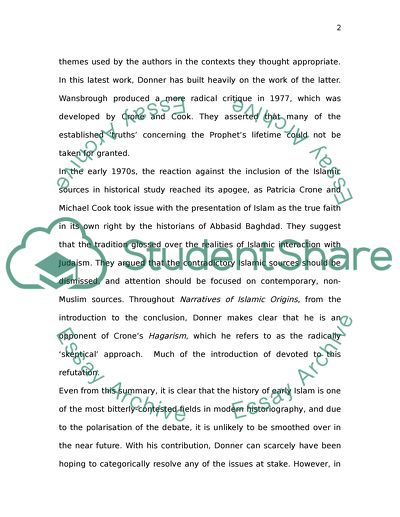Cite this document
(“Critical review of Narratives of Islamic Origins, The beginnings of Essay”, n.d.)
Retrieved from https://studentshare.org/environmental-studies/1408111-critical-review-of-narratives-of-islamic-origins
Retrieved from https://studentshare.org/environmental-studies/1408111-critical-review-of-narratives-of-islamic-origins
(Critical Review of Narratives of Islamic Origins, The Beginnings of Essay)
https://studentshare.org/environmental-studies/1408111-critical-review-of-narratives-of-islamic-origins.
https://studentshare.org/environmental-studies/1408111-critical-review-of-narratives-of-islamic-origins.
“Critical Review of Narratives of Islamic Origins, The Beginnings of Essay”, n.d. https://studentshare.org/environmental-studies/1408111-critical-review-of-narratives-of-islamic-origins.


